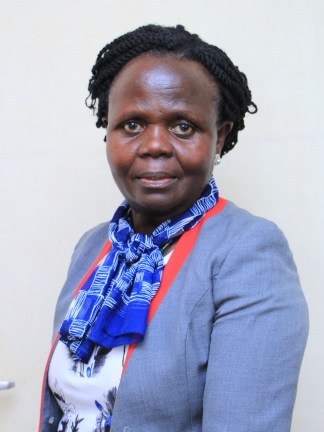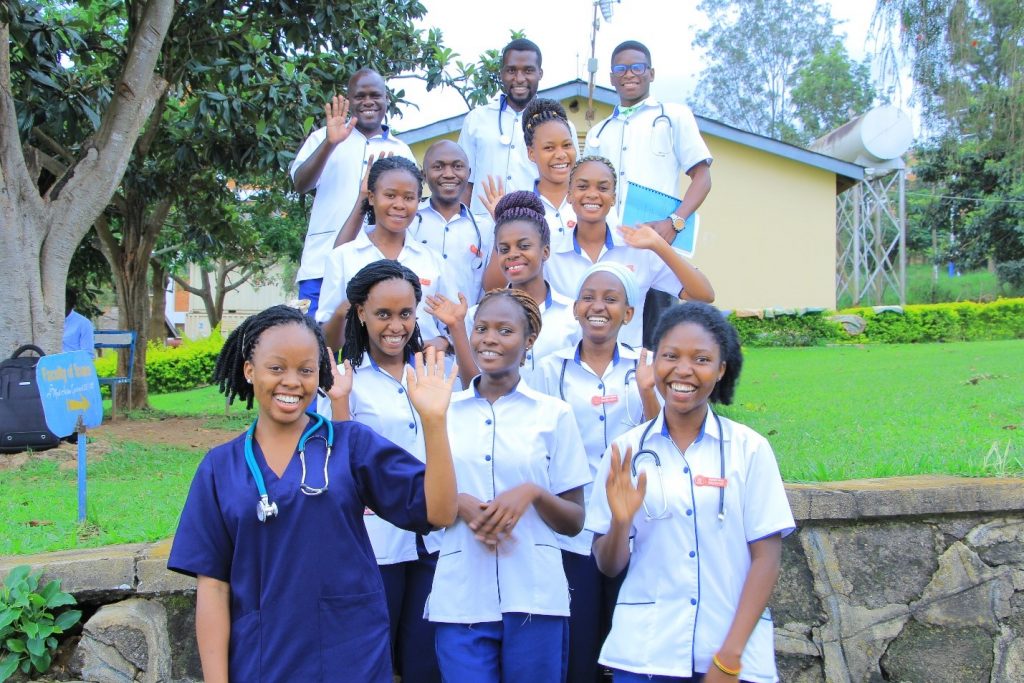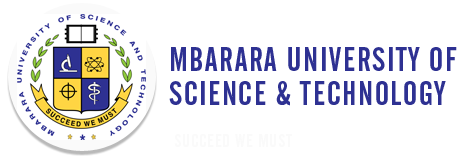Nursing

Dr.Fortunate Atwine
HOD
Nurses with comprehensive skills and broad expertise become well equipped to work within the community as well as hospital settings. A well educated and confident Nurse-Midwife, particularly working out in rural settings has the opportunity to connect with communities, sharing knowledge and working towards a culture of clearer understanding of health and illness. This opportunity particularly gives rise to a substantial impact in relation to working towards Millennium Development Goal 4, 5, 6, 7 and 8. Nurses have a pivotal role to influence the achievement of the millennium goals.
Vision
A centre of excellence in nursing Science education, research and community services .
Mission
To train Nurses with competences that meet the diverse and dynamic needs of the community at National and International level
objectives of the department
- Achieve the initial and long term objectives set to provide infrastructure, expertise and processes that underpin the development
- Promote excellence in academic scholarship and professional development
- To provide sustainable, quality assured education pathways to enhance healthcare provision in Uganda
Our history
1998-9: Through a grant provided by THET, the Faculty of Medicine began working with the University of Hull and Hull Royal Infirmary (UK) to prepare for a new BNSc programme.
1999: The Department of Nursing began to run the BNSc programme with 5 students in the first cohort.
2002: The Department commenced the “Completion Programme”, a BNSc bridging programme for nurses holding certificate and diploma level studies.
2001: The Department commenced the two-year taught Master of Nursing programme.
The following definitions of nursing are accepted at MUST .
Perhaps the most useful definition of nursing is that provided by the International Council of Nurses (International Council of Nurses 2002):
“Nursing encompasses autonomous and collaborative care of individuals of all ages, families, groups, and communities, sick or well, and in all settings. Nursing includes the promotion of health, prevention of illness, and the care of ill, disabled and dying people. Advocacy, promotion of a safe environment, research, participation in shaping health policy and in patient and health systems management and education are also key nursing roles.”
Arguably, the most well-known definition of nursing was proposed by Virginia Henderson (Henderson 1960), is still relevant today and encompasses the role of the nurse in more detail:
“The unique function of the nurse is to assist the individual, sick or well, in the performance of those activities contributing to health or its recovery (or to peaceful death) that he would perform unaided if he had the necessary strength, will or knowledge and to do this in such a way as to help him gain independence as rapidly as possible. This aspect of her work she initiates and controls; of this she is master. In addition she helps the patient to carry out the therapeutic plan as initiated by the physician.”
In many ways, nursing globally encompasses all of these fundamental definitions. It is, however, operationalised and organised within the social, cultural and political context of the community in which it takes place.
Programs in the Department
- Bachelor of Nursing Science (direct and completion)
- Master of Nursing Science
- PhD Nursing Science
The department offers undergraduate and Postgraduate training in Nursing to about annually. Training is based on a well-developed semester-based curriculum. This focuses on strengthening the quality of training comprehensive nurses.
This is to bridge the gap of contemporary health challenges faced at National and Internal levels. This can be achieved thought the 5 arms of Nursing as below:
- Clinical practice
- Nursing Education
- Nursing research
- Nursing leadership and Management
- Community engagement
Training facilities
- Clinical laboratories/ demonstration room
- Simulation centres
- Practicum sites
- Mbarara Regional referral hospital
- Mbale cure Hospital
- Kampala International Hospital
- 20 Nursing and midwifery training Schools in central and south western region
- 2 Community sites
Programmes
| Category | Duration | Study time |
|---|
